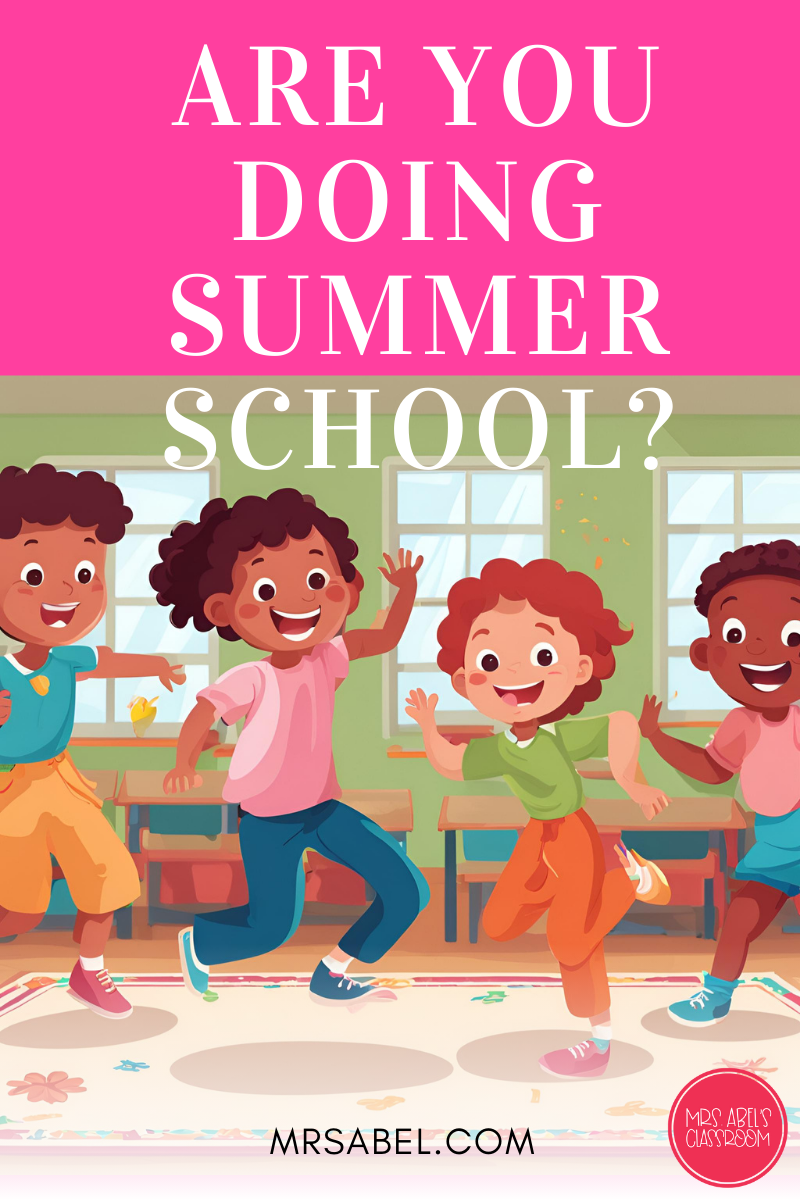Teaching summer school, especially for special needs students, requires a blend of creativity, patience, and adaptability. Engaging activities not only make learning fun but also cater to the diverse needs and interests of students. Here are some creative classroom activities designed to enhance learning and development during the summer school session.
1. Interactive Storytelling
Interactive storytelling is an excellent way to develop language and communication skills. Use props, puppets, or even digital storytelling tools to bring stories to life. Encourage students to participate by asking them to make predictions, answer questions, or even act out parts of the story.
Tip: Use stories that incorporate repetitive phrases or predictable patterns to help students with language delays participate more confidently.
Check out these resources below:
Storyline Online: Videos of celebrated actors reading children’s books aloud.
Tar Heel Reader: Free, easy-to-read, and accessible books on a wide range of topics.
2. Art and Craft Projects
Art projects allow students to express themselves creatively while working on fine motor skills. Provide a variety of materials such as clay, paint, markers, and recycled items. Projects can range from creating simple collages to more complex sculptures or paintings.
Example: Create a “Summer Memory Book” where students can draw or collage their favorite summer activities and experiences.
Check out these resources below:
Art for Kids Hub: Free art lessons for kids, including drawing, painting, and sculpting.
The Artful Parent: Art activities and crafts for children of all ages.
3. Sensory Bins
Sensory bins are fantastic for tactile exploration and can be tailored to suit the interests and sensory needs of your students. Fill bins with materials like sand, rice, water beads, or kinetic sand, and include various tools and toys for exploration.
Idea: Create a themed sensory bin, such as an “Ocean Exploration” bin with blue water beads, plastic sea creatures, and small scoops.
Check out these resources below:
Little Bins for Little Hands: Sensory play ideas and activities for kids.
Fun Learning for Kids: Sensory bin ideas and other sensory play activities.
4. Science Experiments
Hands-on science experiments can captivate students’ curiosity and teach important scientific concepts. Choose experiments that are safe and easy to execute, such as making slime, volcanoes with baking soda and vinegar, or growing plants from seeds.
Activity: Conduct a simple experiment where students can plant seeds in cups and observe their growth over the weeks. This can be tied into lessons on biology and the life cycle of plants.
Check out these resources below:
Science Buddies: Free science project ideas and experiments.
Exploratorium: Science activities and experiments that you can do at home or in the classroom.
5. Music and Movement
Incorporating music and movement into your classroom activities can be especially beneficial for special needs students. Use songs, dances, and rhythm instruments to create an engaging and dynamic learning environment.
Activity: Have a “Music and Movement” session where students can play instruments, dance to different genres of music, and learn simple choreography.
We use GoNoodle daily in my ESY classroom!
GoNoodle: Free movement and mindfulness videos created by child development experts.
Music Therapy Tunes: Songs and activities for children with special needs.
6. Cooking Projects
Cooking projects provide a multisensory experience and teach practical life skills. Choose simple, no-bake recipes that students can easily participate in, such as making sandwiches, fruit salads, or smoothies.
Activity: Plan a “Cooking Day” where students can follow picture-based recipes to create their own snacks. This can also be a great opportunity to discuss nutrition and healthy eating.
Super Healthy Kids: Simple, healthy recipes that kids can help make.
Kids Cooking Activities: Cooking activities and recipes for kids.
7. Nature Walks and Outdoor Learning
Taking learning outside can be a refreshing change of pace. Nature walks allow students to explore their environment and engage in observational learning. Bring along magnifying glasses, notebooks, and cameras to document their findings.
Activity: Organize a “Nature Scavenger Hunt” where students can search for specific plants, insects, or rocks and record their discoveries.
Project Learning Tree: Environmental education programs and activities.
Nature Detectives: Free outdoor learning resources and activities for kids.
8. Themed Weeks
Themed weeks can add excitement and variety to your summer school program. Each week can have a different theme, such as “Space Exploration,” “Under the Sea,” or “Dinosaur Adventure,” with related activities, crafts, and lessons.
Scholastic Teachables: Free resources for various themes (free registration may be required).
Education.com: Themed lesson plans and activities (some resources require free registration).
Example: For a “Space Exploration” week, you could have students create their own planets out of papier-mâché, learn about the solar system, and watch age-appropriate documentaries about space.
9. Interactive Games
Interactive games that encourage problem-solving and teamwork are great for cognitive and social development. Use board games, card games, and even digital games that are suitable for your students’ skill levels.
Activity: Create a “Game Day” where students can rotate through different game stations, playing various educational and fun games.
ABCya: Educational games for kids across various subjects.
Starfall: Interactive games and activities for early learners.
10. Drama and Role-Playing
Drama activities and role-playing help students develop social skills and confidence. Create scenarios or use scripts where students can act out different roles, practice communication, and explore different perspectives.
Activity: Organize a “Mini Play” where students can choose their characters, rehearse simple lines, and perform for their classmates.
Drama Resource: Free drama games and activities.
Childdrama.com: Drama lesson plans and activities for kids.
Conclusion
Incorporating creative classroom activities into your summer school program can make learning enjoyable and meaningful for all students. By providing diverse and engaging experiences, you can support their academic and personal growth in a fun and stimulating environment.
